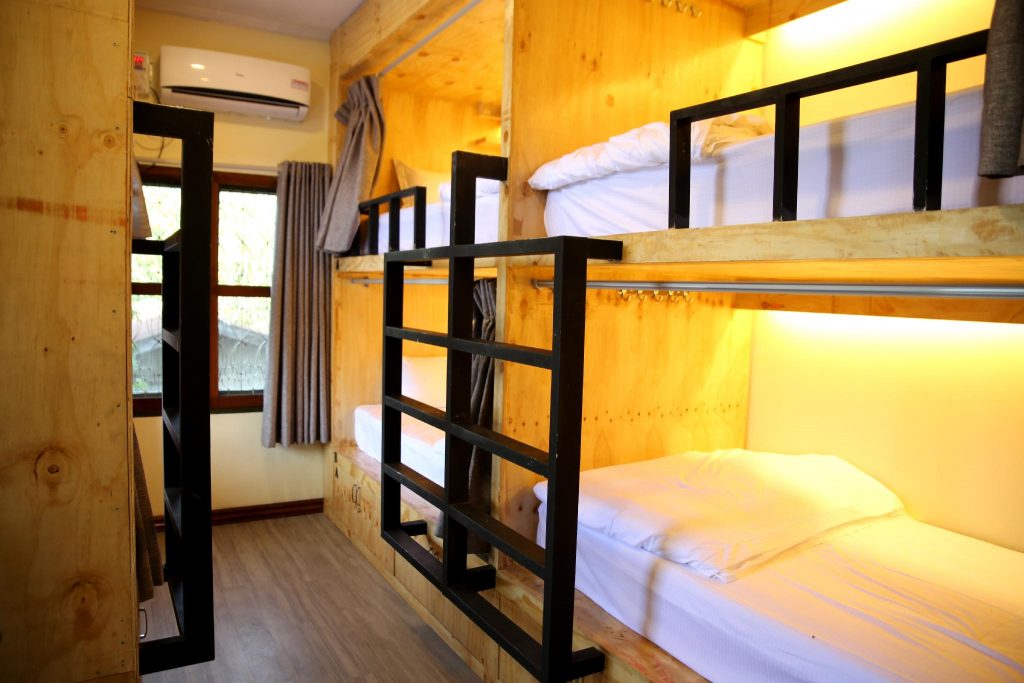When you travel the world’s roads for a long time, you need money like everywhere else, but often far less than most non-travellers imagine. For most travellers who are used to long journeys, there are several solutions to provide for their needs during the big trip… or more simply to make it possible. Because, as you will see, some travellers don’t finance their trip, they make it. Here is a small, non-exhaustive list of possible solutions.
“I have worked hard and put money aside“. That says it all.
This is one of the most common plans, many of us have been dreaming of this trip for a long time. Somewhere they have a savings plan that they have put aside over years of hard work, or for birthdays, as Christmas presents or gifts.
You have a regular income that allows you to travel without working
If you are a pensioner, retired, receiving a pension of any kind or renting out your flat or house: you are very lucky and for the travelling community you win the jackpot. This is the easiest way to travel the world doing nothing but travelling without having to worry about your daily bread.
Work while you travel, it’s possible! What are the options?
Work and Holyday Permit
It is possible to work abroad with a WHV better known as the Working Holyday Visa. WHMs (workers) work on farms, picking fruit, but can also work in a company. This visa is usually valid for one year. After earning some (or a lot) of money, they usually continue their journey to other destinations where another WHV is waiting for them.
This type of visa is possible in a lot of countries but it depends of your nationality. The list changes, so it is recommended to go and see it
directly on the site.
Be careful, there is an age limit. It is often only possible to obtain this visa until the age of 30. However, there is… Some countries are more flexible regarding age and accept adventurers up to 35 years old: Australia, Canada, Argentina…
The conditions differ from country to country, but it is usually a standard working visa. Make sure to find out beforehand, in Japan for example, the WHV does not allow you to work in a bar or nightclubs.
The number of weekly or monthly working hours also varies according to the destination.
The initial purpose of this visa is mostly dedicated to the “in-depth” discovery of a country while offering the traveller the possibility of financing the trip.
You don’t always earn a lot and often have to pay extra for accommodation and food. But sometimes the salary is very interesting.
WOOFING (Work On Organic Farm): working on organic farms around the world
Woofing is based on the same principle as WHV but it concerns exclusively organic farms as its English name indicates.
It is generally a daily work of 4 to 5 hours a day, spread over 5 days a week. Picking fruit, caring for animals, this work does not require great qualifications.
You have a job with a contract in a foreign country: you are an expatriate!
This is generally a job that matches your training or studies. This job is linked to a contract that contains the residence permit/work visa. You work in accordance with the country’s regulations, everything is declared, organised and signed.
But it’s not as easy as it sounds. Most countries favour their citizens. Sometimes the potential employer has to prove that nobody in the country is qualified or available for the job. This future boss will also have to pay extra charges. To get a job abroad, it is best to do your research before you leave.
If you have a very specific, highly technical training or are simply very much in demand in the country where you want to work, you may be lucky enough to land a great job in the country of your dreams. In this case, your objective will probably be to settle in the country for a while.
Financing your trip with odd jobs (cash-on-hand job)
Finding small contracts or jobs for a few weeks or months abroad is difficult. At least, it is possible to find them, but it is undeclared work. There is no insurance in case of accident, no guarantees to be paid, except the garantee that you will be caught during an inspection and sent back, manu militari of the country with the prohibition to return.
It is important to know that most countries, not to say the overwhelming majority, will give priority to their citizens before giving work to foreigners.
In this category, there are also those who make and sell, often on the sly, something, jewellery for example. The bulk of this category makes music in the street and lives on the generosity of music-loving passers-by.
There are also those who paint decorative frescoes in youth hostels in fashion: bed + food (a meal in general) + $5 to $10 a day.
Of course the list is not exhaustive, there are many forms of odd jobs.
I’ve met a lot of travellers who work this way. They don’t earn much but it’s enough for them to continue their journey.
Travelling while living on charity: begging for money
No, it’s not an advice, it’s just a list of the most exhaustive means of subsistence for travellers. This phenomenon is not uncommon, it even has a name:
the Begpackers, a play on the English word to Beg and the 2nd part of the word backpacker. These travellers sit on the ground in the streets of Kuala Lumpur, Delhi or Quito in front of a cardboard sign “
Please Help me for my World Trip“. Sometimes they play music too, paint pictures, cards, but it is not for love of art that they do this…
Volunteer work in organisations, families and communities
Everything is said: we work without earning a penny, but in exchange for housing and food. This allows you to immerse yourself in the country and… to spend (almost) nothing.
There are a plethora of websites that offer travellers the opportunity to come and work without pay in return. Sometimes it is a question of working in a hotel, hostel or youth hostel, or helping a family, looking after children, doing building sites in the house (painting, gardening), developing a local business, etc.
There are now a profusion of volunteer posts on dedicated sites in all countries. The most famous of these is called
Workaway. Membership is paying and lasts only one year. You can find everything there. This site is open to everyone, even the elderly.
There are of course many organizations that employ volunteers for humanitarian purposes but
beware of scam, they are commun!
Working freelance with your computer: the new digital nomads travel while working and work while travelling
This option, extremely popular since the world has been connected to the internet, has found its own name: Digital Nomads.
These travelling workers just need a computer and an internet connection. They do translations, write content for the web, reference articles or sites for search engines, test websites, program, create sites, graphic design, etc.
It’s quite simple, you declare a company, you apply on dedicated platforms (UpWork, scriber, etc.), you work on projects and the site pays you (for a commission, it goes without saying).
If you’re already a freelance, then you’ll probably work with your own clients.
The higher the level of qualification (developers, animation specialist or complex and sought-after programs/language) the more lucrative the work will be and therefore the possibility to travel quite comfortably while working at your own pace. In other words, work when the need arises.
But if you are producing content for Amazon, the chances of making a living are like the salary: slim. A large proportion of digital nomads are content creators. Since the content of a website is a guarantee of its success, the demand for this profession has exploded. Beware, it’s not as easy as it sounds!

